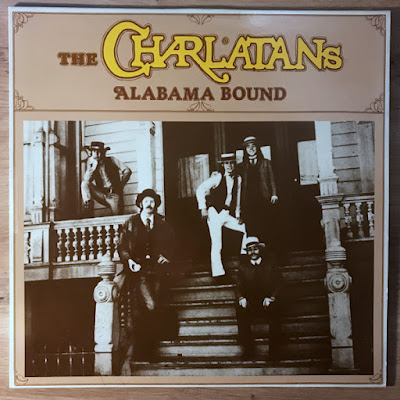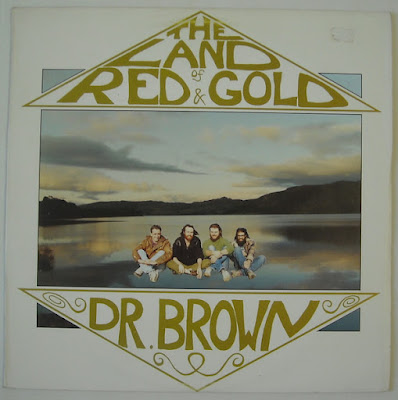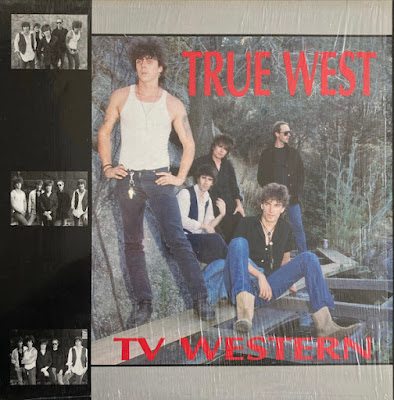Trad Gras Och Stenar - same (1969, Swe, psychrock, Silence CDrip, single flac + cue, log, artwork)
*** Reviewed by great fellow Adamus67 ***
With their trance-evoking mix of psychedelic blues-rock and folk music, Träd, Gräs och Stenar (Trees, Grass and Stones) played a central roll in the development of progressive rock in Scandinavia in the early '70s. They were also one of the biggest, and best-sounding, examples of the idea that the audience should participate in the music. Träd, Gräs och Stenar was formed in 1969 by drummer Thomas Mera Gartz, bassist Torbjörn Abelli, cellist Arne Ericsson, and guitarist Bo Anders Persson, remnants of International Harvester, and released a self-titled debut album in 1970. That same year they wrote the music for the film Du Gamla du Fria but remained mainly a live band. Not only did they perform better live than on record -- they even had a program that pointed out live interaction with the audience as the main purpose.Träd, Gräs och Stenar stood for a union of art with politics and artists with the audience. Practically, that resulted in concerts where the audience took part in the music, as can be heard on Spela Själv. This was also one of the ideas behind the illegal festivals at Gärdet that the band initiated. Guitarist Jakob Sjöholm joined in 1970 and the first few years of the decade came to be very productive for Träd, Gräs och Stenar. They toured throughout Scandinavia, took part in various festivals, events, and protests, and released the live LPs Djungelns Lag and Mors Mors in 1971 and 1972, both having grave sound problems. The studio album Rock För Kropp Och Själ, with its 20-minute title track, was released in 1972. Feeling dwindling support for their idea of organic art anarchism and reportedly also having problems with the police because of the amount of drugs at their concerts, they decided to disband later the same year.
In 1979 Träd, Gräs och Stenar reunited, now including poet Thomas Tidholm, who had been a member of International Harvester in the '60s, and during 1980 and 1981 they toured under the name T Gås. If this reunion wasn't too successful and progressive rock was looked down upon in the '80s, the '90s saw Träd, Gräs och Stenar's influence being recognized again, with names like Pavement's Stephen Malkmus mentioning them as an inspirational source. In 1995 it was time for a more lasting reunion and in 1996 they played at the Emmaboda Festival, which was followed up by a number of festival gigs in the coming years. In 2000 and 2001 they recorded material for a new studio album, the first in almost 20 years; Ajn Schvajn Draj was released in 2002. The group resumed touring during subsequent years, but guitarist Persson would later depart the touring version of the band. Träd, Gräs och Stenar issued another album, Homeless Cats, in 2009; however, bassist Abelli passed away the following year, and drummer Gartz died in 2012.
Thank you so much Adam for that effort
My favorite album from the Parson Sound/Harvester/International Harvester/T, G, & S collective that I've heard so far. This one has a lot less space and repetition than the previous material, as well as a more unified sound throughout. The differences aren't huge, but can still serve as distinguishing factors among the recordings.
Each song is a high on one level or another. pretty pretty pretty pretty. gritty gritty. not so shitty.
(~rym) by stupidwall
First record under the name "Träd, Gräs Och Stenar" by the swedish psych/underground heroes Pärson Sound/International Harvester/Harvester/Träd, Gräs Och Stenar. Not as good as earlier recordings, but "Sanningens Silverflod" is a classic.
(~rym) by lulle
Träd Gräs och Stenar - Sanningens Silverflod
Tracks:
1. All Along The Watchtower 8:16
2. I Can't Get No Satisfaction 11:07
3. Sanningens Silverflod 3:53
4. Tegenborgsvalsen 2:35
5. All Makt Åt Folket 6:05
6. Svarta Pärla Vocals 5:19 /vocal – Thomas Gartz/
1. All Along The Watchtower 8:16
2. I Can't Get No Satisfaction 11:07
3. Sanningens Silverflod 3:53
4. Tegenborgsvalsen 2:35
5. All Makt Åt Folket 6:05
6. Svarta Pärla Vocals 5:19 /vocal – Thomas Gartz/
Trad Gras Och Stenar:
Torbjörn Abelli - Bass, Jew's Harp, Flute
Thomas Gartz - Drums, Jew's Harp, Flute
Arne Eriksson - Electric Piano, Cello, Flute
[Rip and Scans by gigic2255]
Link:
https://www.mediafire.com/?uk2tzhts5ppicl0
Alternative download:
Djungelns Lag (Live, released in 1971) Flac+scans
https://www.mediafire.com/?2ayuo4qt2bub10w
Link:
https://www.mediafire.com/?uk2tzhts5ppicl0
Alternative download:
Djungelns Lag (Live, released in 1971) Flac+scans
https://www.mediafire.com/?2ayuo4qt2bub10w












muchas, muchas gracias
ResponderExcluirWith their trance-evoking mix of psychedelic blues-rock and folk music, Träd, Gräs och Stenar (Trees, Grass and Stones) played a central roll in the development of progressive rock in Scandinavia in the early '70s. They were also one of the biggest, and best-sounding, examples of the idea that the audience should participate in the music. Träd, Gräs och Stenar was formed in 1969 by drummer Thomas Mera Gartz, bassist Torbjörn Abelli, cellist Arne Ericsson, and guitarist Bo Anders Persson, remnants of International Harvester, and released a self-titled debut album in 1970. That same year they wrote the music for the film Du Gamla du Fria but remained mainly a live band. Not only did they perform better live than on record -- they even had a program that pointed out live interaction with the audience as the main purpose.
ResponderExcluirTräd, Gräs och Stenar stood for a union of art with politics and artists with the audience. Practically, that resulted in concerts where the audience took part in the music, as can be heard on Spela Själv. This was also one of the ideas behind the illegal festivals at Gärdet that the band initiated. Guitarist Jakob Sjöholm joined in 1970 and the first few years of the decade came to be very productive for Träd, Gräs och Stenar. They toured throughout Scandinavia, took part in various festivals, events, and protests, and released the live LPs Djungelns Lag and Mors Mors in 1971 and 1972, both having grave sound problems. The studio album Rock För Kropp Och Själ, with its 20-minute title track, was released in 1972. Feeling dwindling support for their idea of organic art anarchism and reportedly also having problems with the police because of the amount of drugs at their concerts, they decided to disband later the same year.
In 1979 Träd, Gräs och Stenar reunited, now including poet Thomas Tidholm, who had been a member of International Harvester in the '60s, and during 1980 and 1981 they toured under the name T Gås. If this reunion wasn't too successful and progressive rock was looked down upon in the '80s, the '90s saw Träd, Gräs och Stenar's influence being recognized again, with names like Pavement's Stephen Malkmus mentioning them as an inspirational source. In 1995 it was time for a more lasting reunion and in 1996 they played at the Emmaboda Festival, which was followed up by a number of festival gigs in the coming years. In 2000 and 2001 they recorded material for a new studio album, the first in almost 20 years; Ajn Schvajn Draj was released in 2002. The group resumed touring during subsequent years, but guitarist Persson would later depart the touring version of the band. Träd, Gräs och Stenar issued another album, Homeless Cats, in 2009; however, bassist Abelli passed away the following year, and drummer Gartz died in 2012.